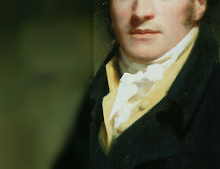
After creating a blog entirely dedicated to the promotion of my writings, I realized that this required me to go through my many saved documents. I spent the remainder of the day going through my folders and regretted that I did not inherit my mother’s talent of organizing. ;-) Most likely my entries will be very sporadic until I can come up with a better system.
This first essay is called “The Search for Truth”; it is one of my more recent essays. I decided to write this after someone told me: “well that may be true for you, but I don’t agree...” This is the most common rejection of the Gospel I hear after sharing my testimony. Professors and classmates alike have confronted me on this issue of believe in absolute truth. They feel I am being intolerant by saying that something is “morally wrong”. If ever I got the chance to submit an essay to a Professor, regardless of the malicious grade he would give me, I would send him this….
The Search for Truth
Truth has become a versatile word. The definition of what is honestly true and right is no longer believed to be an absolute. Anything can be defined by one’s own cultural perspective. Truth has been altered to the point that the assumption of relativity has consumed the idea whole. What is right or wrong is left up to the individual and what they believe.
What is truth? It is a simple question in of itself; but most likely when asked to a broader group of individuals, a hundred answers could and would be shared. The first principles of knowledge all have a starting point. In order to find the knowability of truth we must examine the first principles of a how truth is defined. Truth is separated into two categories: Metaphysical and Subjective.
Metaphysical truth corresponds with reality. So what we see, what we know to be true, must coexist with reality. Reality being defined as: “what is” or “what exists”. The Greek philosopher Aristotle said: "“If there is a man, the statement whereby we say that there is a man is true.” Aristotle argued that truth relies on the actual existence of the thing which a thought or statement is about." (i)
Subjective truth is when truth and reality are determined by the individual. Reality is a broad term in this case since it is not necessarily what surrounds the individual, but what he/she in visions to be real. Thomas Aquinas asserts that “truth is defined by the conformity of intellect and thing; and hence to know this conformity is to know truth.” (ii) If truth does not correspond to reality then what is false or what is true makes no difference. The sky is blue. This is a fact. Although someone might define the sky differently by color such as aqua or sapphire, they are attempting to describe the same reality: the sky is blue. But if someone else claims the sky is red than that person is questioning the truthfulness and reality of the fact that: the sky is blue. The sky has to be either blue or red it cannot be both. Truth must be applied to reality or else all that we know is lost.
The theory of relativism states that truth cannot be defined by one standard. It may be determined by circumstance. A fact or something that can be shown to be true is dependent on how truth is defined. If it is reliant upon circumstance then anything could be true, for example: to believe in relative truth would be to agree that there is no difference between Nazis and Christians. Hitler and Jesus are both right in the eyes of relative truth.
Truth must be absolute or it will contradict itself. We cannot allow the idea of relativity to lead us into accepting any and every belief. Right and wrong must be classified as two very different things. It cannot be one or the other. Truth cannot survive in a world where right and wrong do not exist. “If you see through everything, than everything is transparent. But a wholly transparent world is an invisible world. To ‘see through’ all things is the same as not to see.” (iii)
(i)The New Evidence That Demands A Verdict (Aristotle, C, 12, 14b15-22)
(ii)The New Evidence That Demands A Verdict (Aquinas, St, 1.16.2)
(iii)C.S. Lewis, The Abolition of Man



+of+Little+Women2.jpg)
.png)
.png)


.png)







.png)



